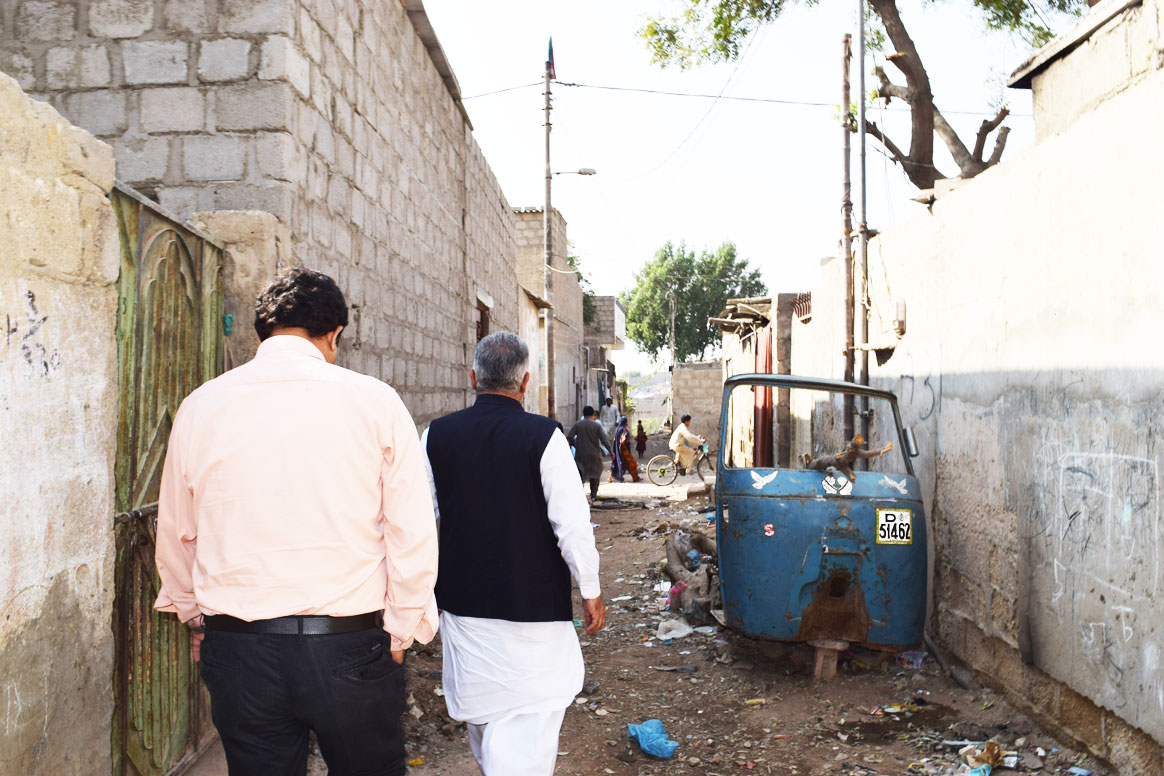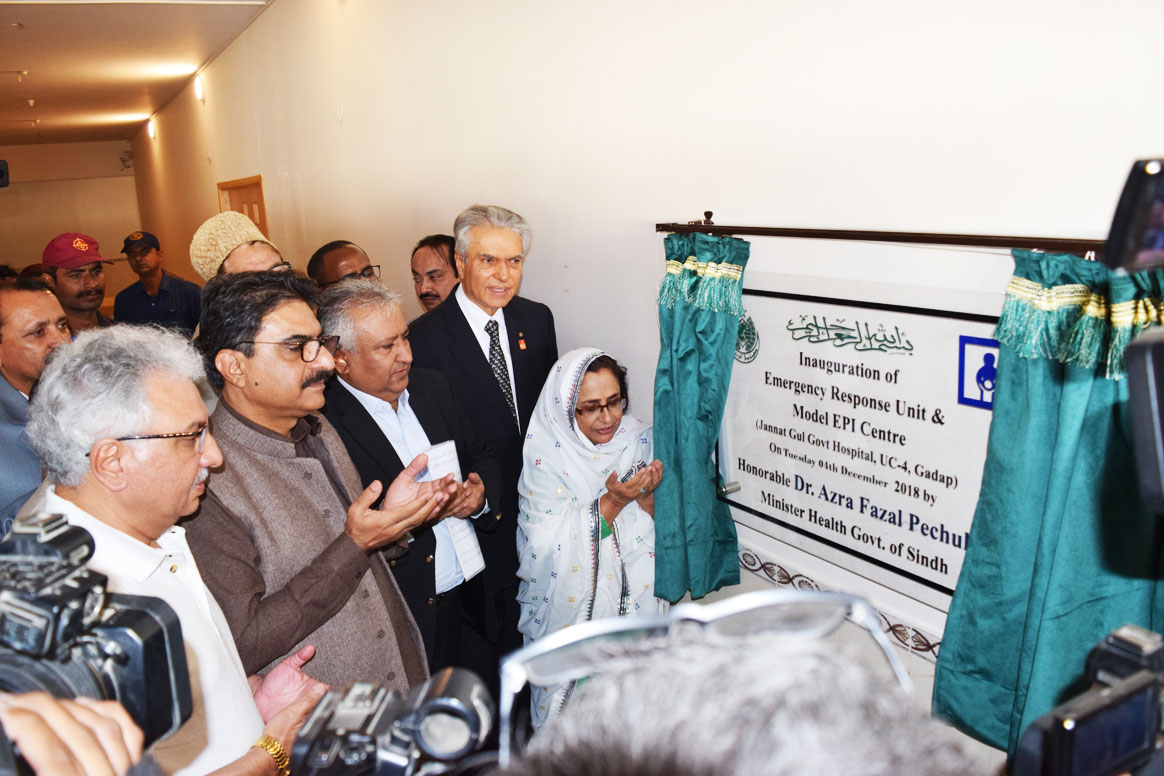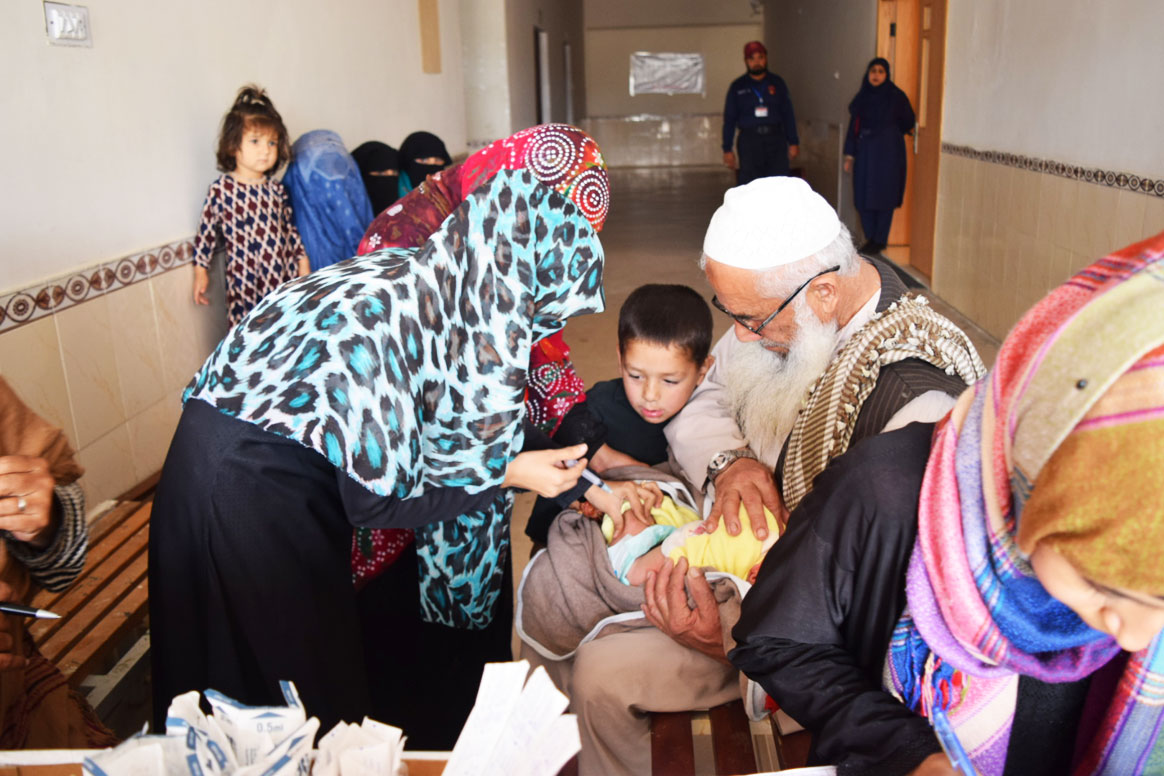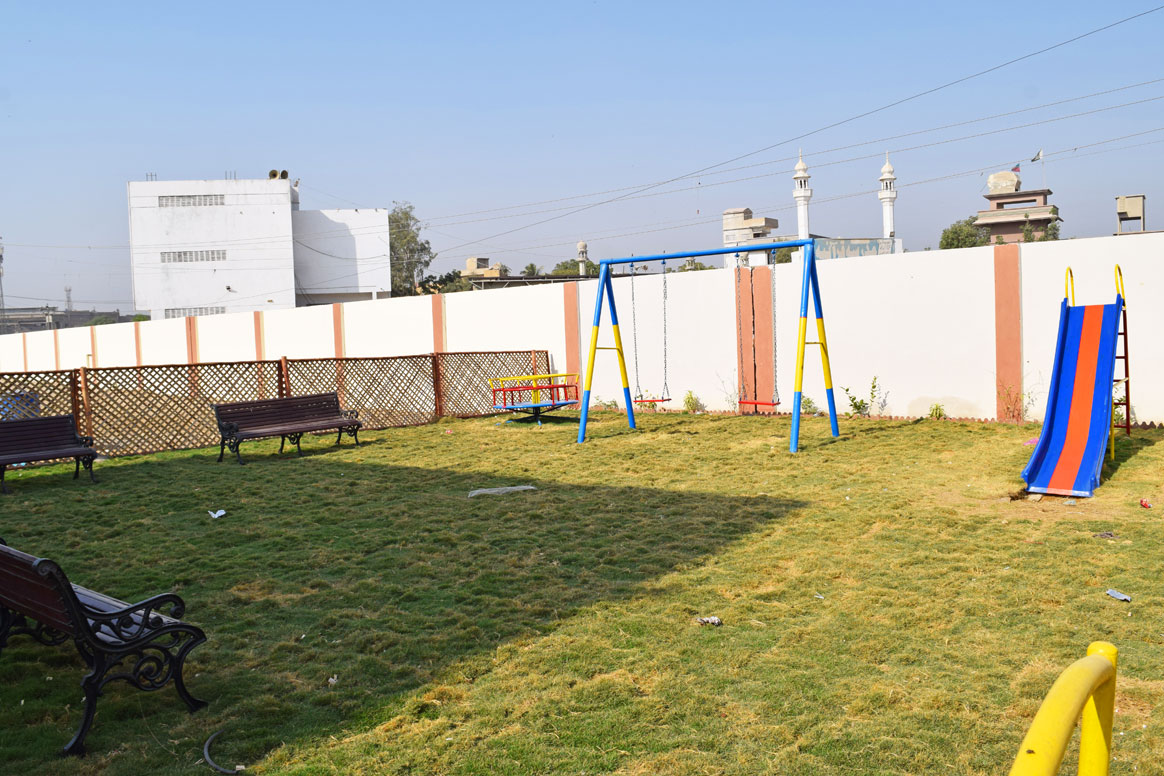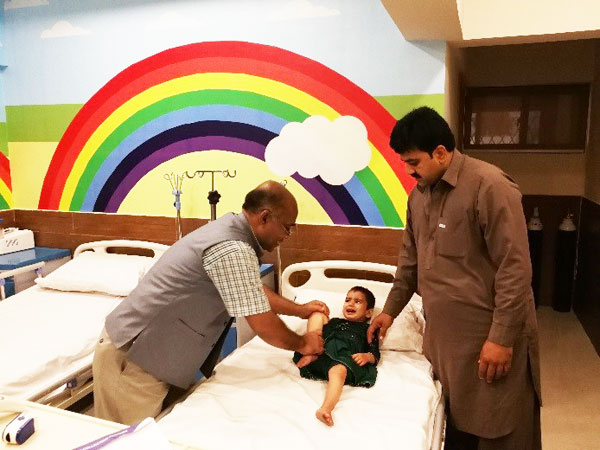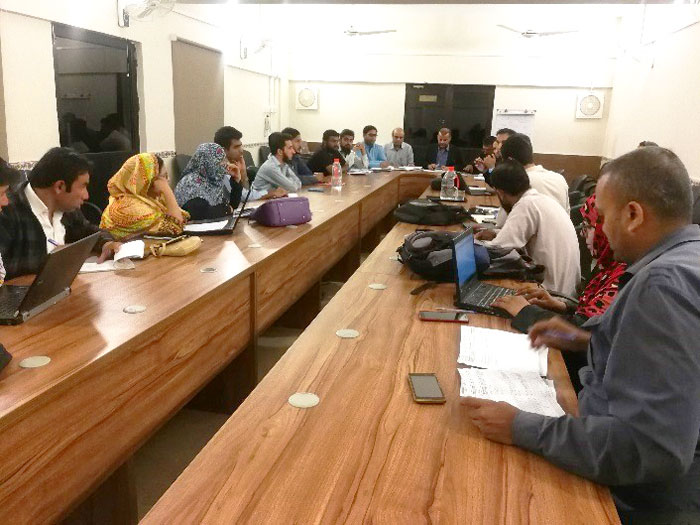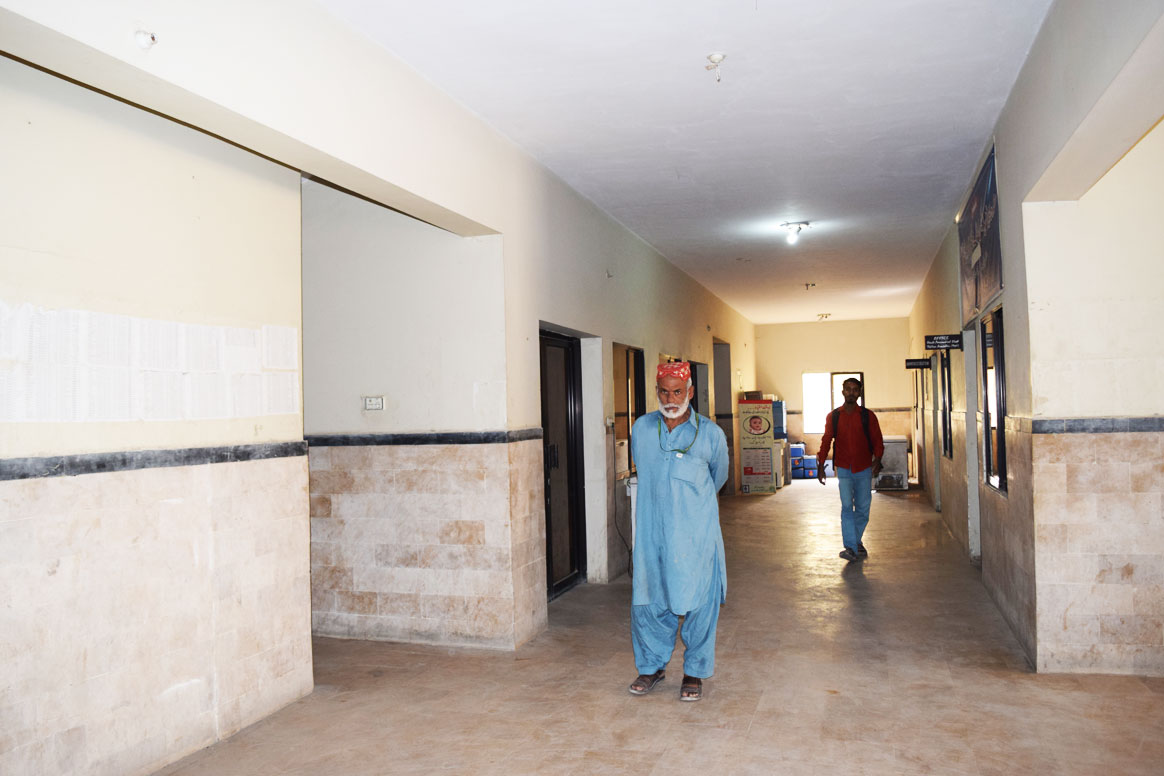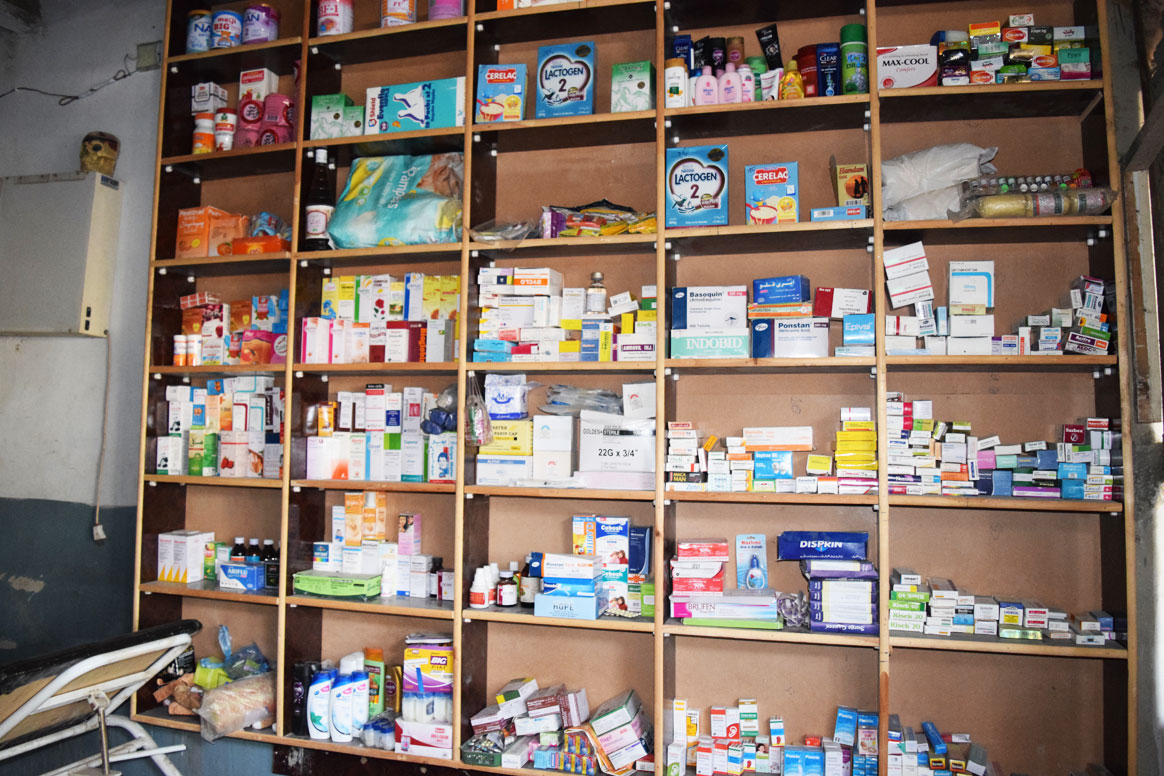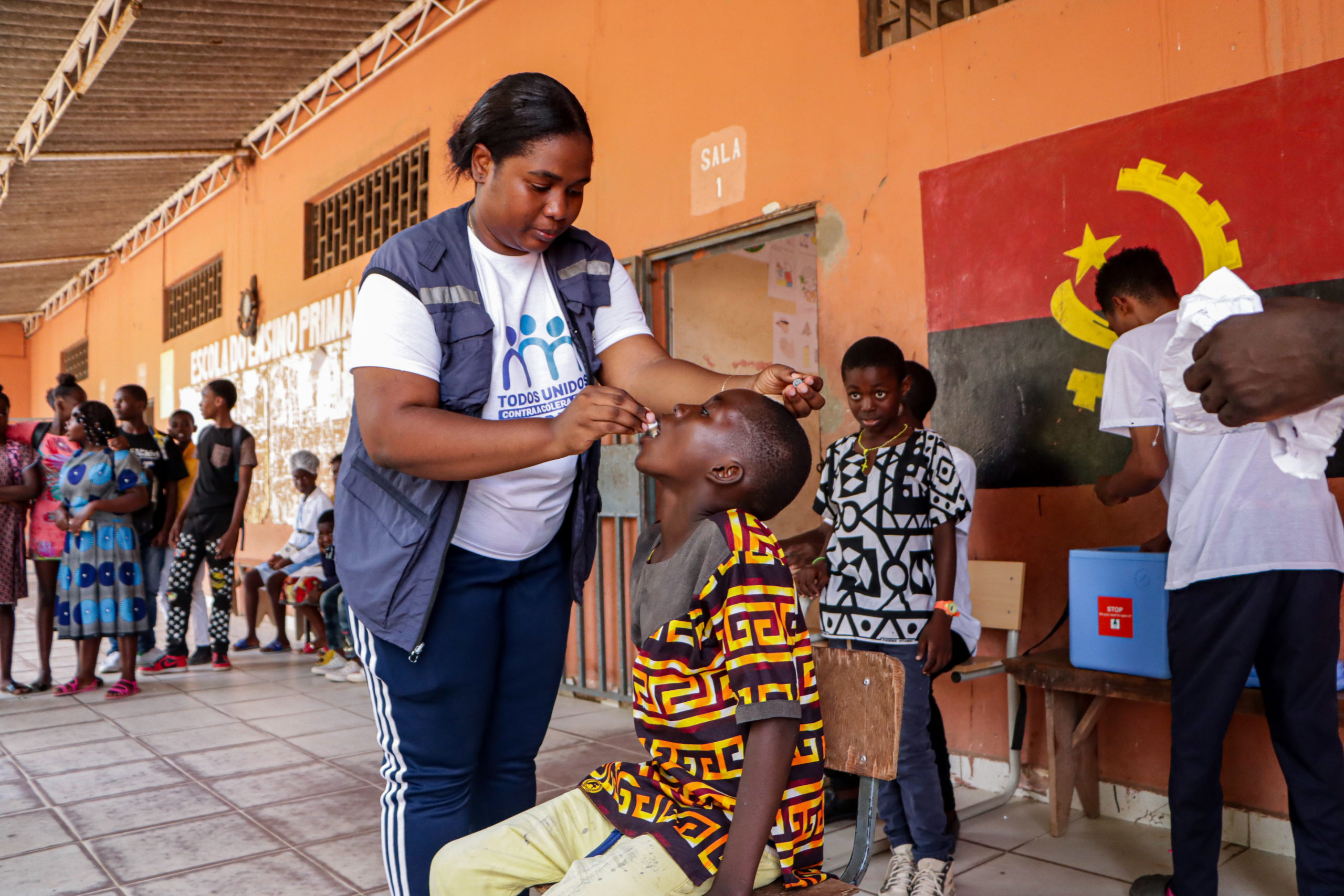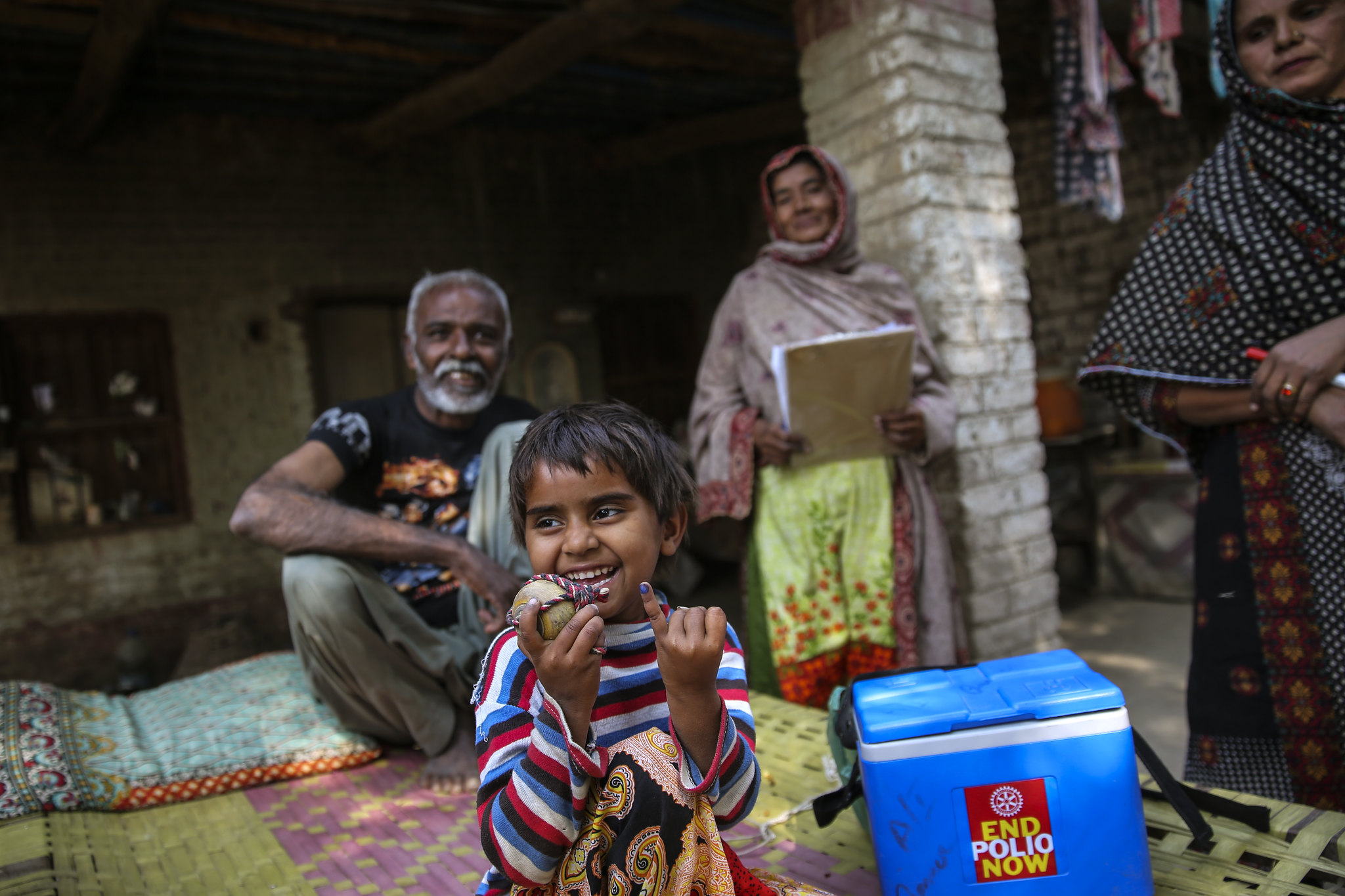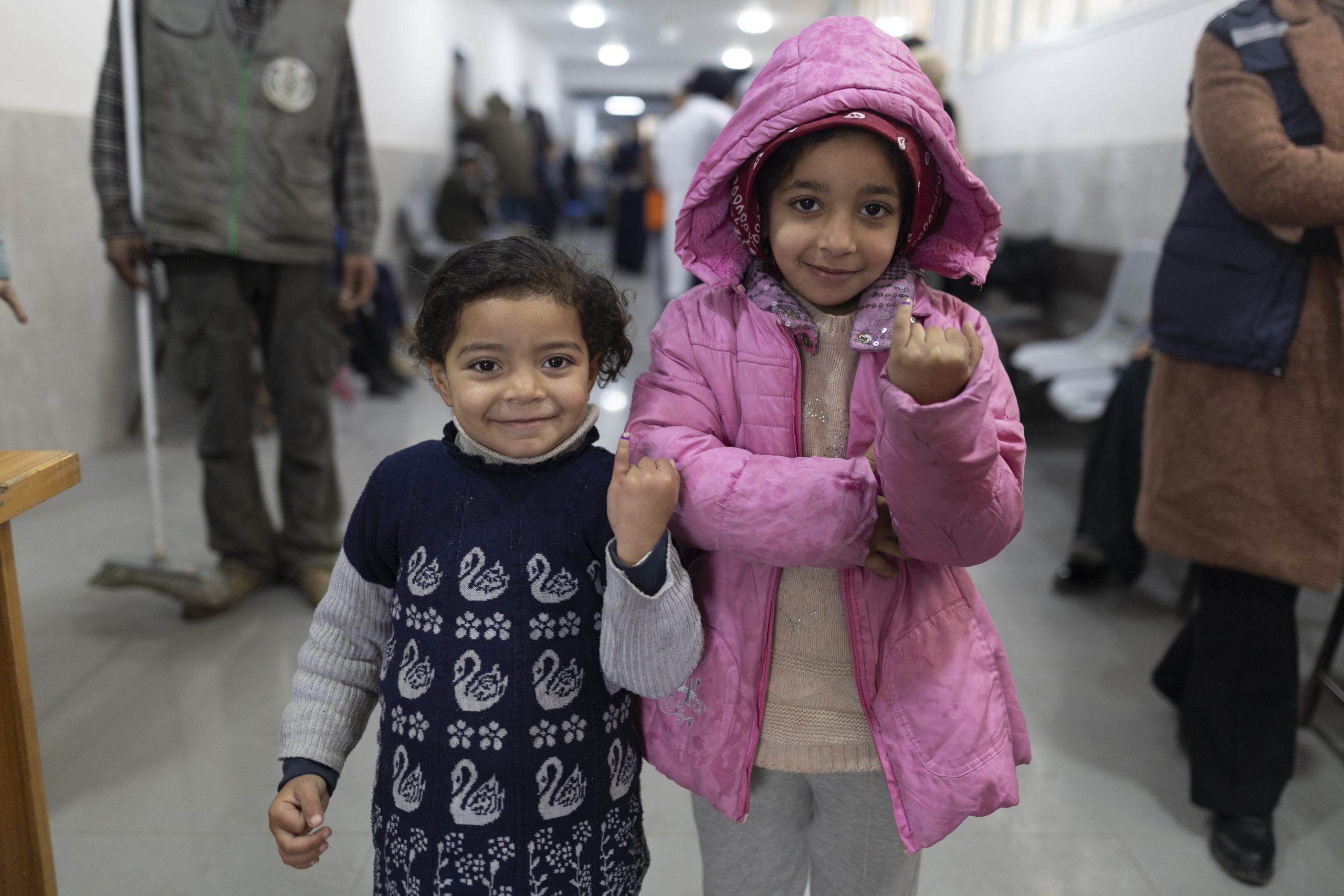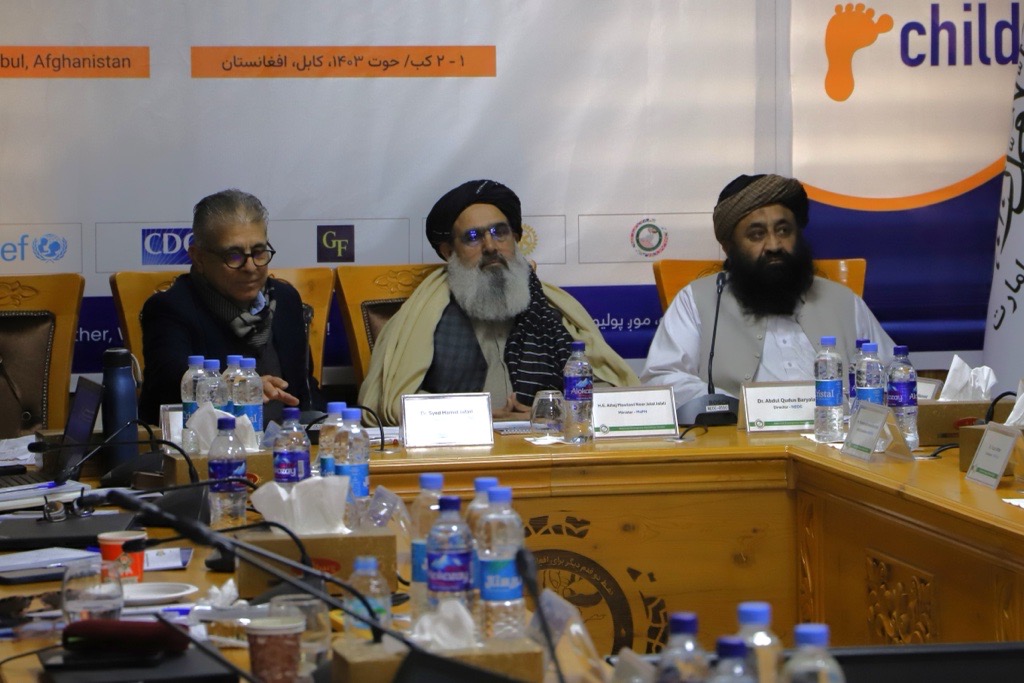In Karachi’s Gadap Town, many families lack basic health and municipal services. To fill the gap, the Polio Emergency Operations Centre in Pakistan’s Sindh province has recently renovated an abandoned hospital to create an Emergency Response Unit (ERU). The unit provides polio vaccination to communities alongside PolioPlus activities to improve overall health. The unit was built with the support of Rotary International, WHO, UNICEF and the Bill & Melinda Gates Foundation.
Click through the gallery to see how the Gadap Emergency Response Unit has changed health delivery:
©WHO Pakistan/Dawood Batozai
Gadap Town is home to many informal doctors who are not sufficiently trained to provide basic health services to the community. Often, they put their patients at risk. Before the creation of the Emergency Response Unit (ERU), most people had no choice but to rely on them for basic healthcare.
©WHO Pakistan/Dawood Batozai
Now, the PolioPlus programme has helped turn the once abandoned Jannat Gul Hospital into a vibrant health centre. The hospital was renovated in record time and was inaugurated by the Minister of Health for Sindh Dr. Azra Fazal Pechuho, EOC Coordinator Mr. Umer Farooq Bullo and Rotary Pakistan PolioPlus Committee Chair Mr. Aziz Memon.
©WHO Pakistan/Dawood Batozai
The new ERU hosts essential immunization services for children, including polio vaccination. The site also houses equipment to keep vaccines cold and ready for use.
©WHO Pakistan/Dawood Batozai
Outside, a lawn with play equipment has been set up. Gadap is one of Pakistan’s largest slums, and the provision of a rare child-friendly environment as part of the health facility is helping to build community trust and acceptance of the polio eradication programme.
©WHO Pakistan/Dawood Batozai
One room is for use by children suffering Acute Flaccid Paralysis and is also used to monitor any child having a reaction to immunization. The room is managed by a Government Medical Officer, supported by WHO provincial and federal monitors during polio vaccination campaigns.
©WHO Pakistan/Dawood Batozai
A multipurpose room is used for trainings and planning before and during polio vaccination campaigns.
The ERU also hosts a data support centre that allows staff to relay live updates on polio campaign performance to the Sindh Emergency Operations Centre.
©WHO Pakistan/Dawood Batozai
Five health dispensaries have been set up Gadap Town as part of the project, whilst a local Maternity Home is also being renovated.
These facilities will improve essential immunization and provide basic primary health services. They will also provide gynecological and maternal health services, which are in extremely high demand in Gadap.
©WHO Pakistan/Dawood Batozai
The Government envisages that the ERU will continue to provide vital health services to families long after polio is eradicated. Rather than resorting to the care of informal doctors and nurses, the community can now access better quality healthcare, funded by the public sector.
From an abandoned hospital to a successful community health project: This is what the ‘plus’ in PolioPlus looks like.
